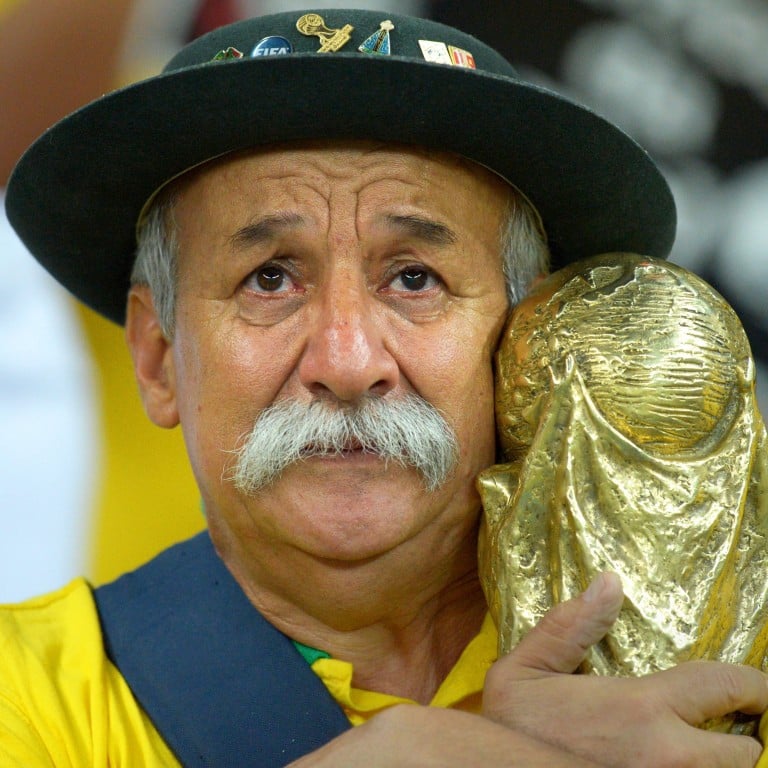
Brazil in mourning after 7-1 thrashing at the hands of Germany
The ghost of 1950 has company, but the fallout of this year's stunning result is even more frightening and will haunt the hosts for decades
Even for an 84-year-old tournament drenched in history, Germany 7 Brazil 1 - you read that right - will be remembered as one of the craziest World Cup matches ever. Because of the humiliation it inflicted on a great footballing nation, as one of the most painful to watch, too.
Brazil, the once mighty Brazil, the Brazil that gave the world Pele, so many other great players and yellow-shirted delight, throwing themselves like a herd of lemmings off a cliff. Not just a team self-destructing, but an entire nation's hopes and World Cup joy turning to vinegar and flushing down the drain on live TV before millions of disbelieving eyes around the globe.
"We realised that they were cracking up and took advantage of it," said Germany coach Joachim Loew.
Even the half-time score - Brazil 0 Germany 5 - was something no sportswriter ever expects to have to record for posterity. No nation has ever done anything like this to Brazil, not once in all the decades that Brazilians have played and refined football, making it futebol and making it better.
Germany's goals rained in so thick and fast it became a struggle to keep up. The second and then, a minute later, the third goal had the effect of a stun gun on Brazil. Their players were labouring under such pressure to win their home World Cup. And when it became clear in that minute that they would fail, that pressure became like poison on their brains and legs. They became like ghosts. In the next five minutes, they let in two more.
For Germany, it was like shooting fish in a barrel. No shot could miss. Everything worked. With Brazil gone AWOL, they had the place to themselves. In the crowd, fans' tears cut streaks through their yellow and green face paint. An elderly man clutched a plastic imitation World Cup trophy as though it was a life preserver, as close as Brazil will come to the real thing this time.
"Truthfully, it's very hard to explain the unexplainable," said Brazil goalkeeper Julio Cesar. "A blackout happened that no one was expecting."
Just like their parents and grandparents, this generation of Brazilians now has a football trauma of its own to haunt them. In 1950, when Brazil last hosted the World Cup, Alcides Ghigghia scored the cup-winning goal for Uruguay in the final match against Brazil, leaving a mark on the nation's psyche as deep and painful as a branding iron.
There were five heartbreakers this time: Thomas Mueller, Toni Kroos and Andre Schuerrle, who got two each, Sami Khedira and Miroslav Klose. Klose's goal added insult to injury by taking his career World Cup total to 16, leaving him alone with the record that previously belonged to a Brazilian, Ronaldo.
When the final whistle blew, not a moment too soon, delivering a score that read like a cash register bill, the record book had been shredded. This made losing 3-0 to France in the 1998 final - Brazil's previous worst loss (measured by goals, not pain) in the World Cup - feel like a mosquito bite in comparison.
Brazil had never let in so many goals in a World Cup game or so many in a half. It was the worst defeat for a World Cup host country and was as bad a loss as Brazil have ever suffered in any tournament or any game. It equalled the margin of their previous worst ever defeat - a 6-0 loss to Uruguay in 1920.
"It was one after the other," said Brazil coach Luiz Felipe Scolari. "I think everyone like blanked out."
As such, it wouldn't be right to draw too many conclusions. This game has to be viewed as an anomaly, not as a definitive verdict on Scolari and his players. Many of them are young enough to be able to look ahead to the next World Cup in 2018.
Still, this is the worst national team Brazil have fielded at a World Cup for decades. That much was becoming clear even before this disaster. A scratchy 2-1 victory over Colombia in the quarter-finals and a skin-of-the-teeth penalty shoot-out win over Chile before that exposed Brazil's limitations.
And Germany exploited them, ruthlessly.
Loew spotted vulnerabilities in the Brazil defence and that they leave open spaces at the back when they attack. The absence of Thiago Silva, Brazil's defensive rock and captain suspended for this game because he collected two yellow cards earlier in the tournament, will be mentioned among the reasons why his team rolled over. But even that doesn't really explain it.
And take out Neymar, as Colombian defender Juan Camilo Zuniga did with his knee, breaking a bone in the striker's back, and you're left with a Brazil team with more gums than teeth. But even with Neymar, Brazil couldn't have scored as many goals as the Germans. They have a team. Brazil didn't.
Oscar's goal at the end of the match took Brazil's tournament total to 11. That works out as one goal for every billion dollars that Brazil has spent on this World Cup, on stadiums and related infrastructure. Even if Brazil score a few more in the match for third place on Saturday, that is still a very poor return.
In the stadium, the mood soured. The crowd chanted insults aimed at President Dilma Rousseff. The ramifications of this defeat will be political, too.
